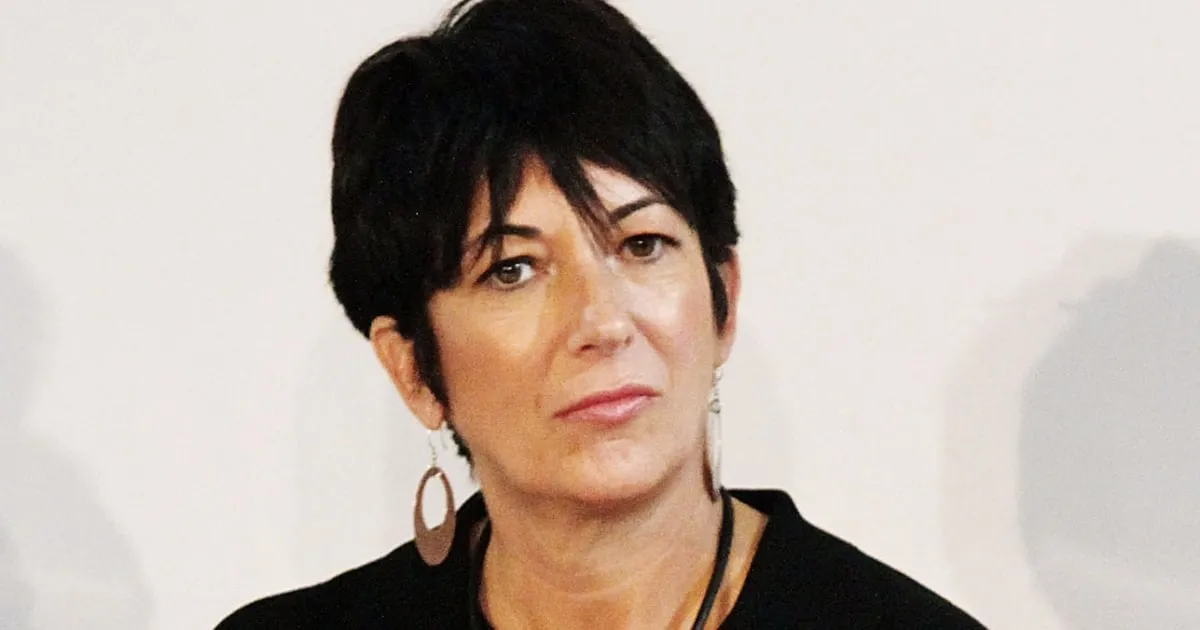
WASHINGTON — The Supreme Court delivered a significant ruling on Monday, rejecting Ghislaine Maxwell’s appeal against her criminal conviction related to the heinous acts of recruiting and grooming teenage girls for sexual abuse by the notorious financier Jeffrey Epstein. This pivotal decision affirms that Maxwell’s conviction on three counts, along with her 20-year prison sentence, will remain intact.
Maxwell's attorney, David Oscar Markus, argued in court documents that a non-prosecution agreement negotiated by Epstein with the former U.S. attorney for the Southern District of Florida, Alex Acosta, should extend to one of the counts against her. This agreement purportedly provided immunity not only to Epstein but also to potential co-conspirators, raising questions about its applicability in Maxwell's case, which was prosecuted in New York.
Expressing disappointment over the Supreme Court's decision, Markus stated, "We’re, of course, deeply disappointed that the Supreme Court declined to hear Ghislaine Maxwell’s case. But this fight isn’t over. Serious legal and factual issues remain, and we will continue to pursue every avenue available to ensure that justice is done."
Central to Maxwell’s appeal was the interpretation of the non-prosecution agreement. The question arose whether this agreement, negotiated in Florida, was limited to that district or if it held binding power over federal prosecutors nationwide. The Justice Department urged the Supreme Court to dismiss Maxwell’s appeal. Solicitor General D. John Sauer highlighted that internal policies would have required the U.S. attorney to seek permission from superiors for the agreement to apply beyond his district, a process that was not evidenced in this case.
Ghislaine Maxwell was found guilty in 2022 on three counts concerning her involvement in Epstein’s criminal activities. Prosecutors alleged that Maxwell played a crucial role in assisting Epstein by befriending vulnerable girls, some as young as 14, and facilitating their transport to Epstein’s residences. Reports indicated that she was often present during the abusive acts, further implicating her in the disturbing exploitation of these minors.
The case against Epstein and Maxwell has remained in the public eye, especially this year as the Justice Department and the FBI reiterated that there was no credible evidence supporting the existence of an Epstein “client list” or allegations that he was blackmailing prominent individuals. Furthermore, they reaffirmed the conclusion that Epstein died by suicide in 2019, countering conspiracy theories suggesting foul play.
This position has incited backlash against the Trump administration, including criticism from some of the former president’s supporters. Notably, Trump had maintained a friendship with Epstein for years but claimed they had a falling-out prior to the public allegations against Epstein.
In an unexpected turn of events, Deputy Attorney General Todd Blanche, who previously served as Trump’s personal lawyer, conducted a lengthy and secretive interview with Maxwell. Following this meeting, Maxwell was transferred from a prison in Florida to a lower-security prison camp in Texas. The Bureau of Prisons has not provided an explanation for her transfer, adding another layer of intrigue to an already controversial case.
The legal battles surrounding Ghislaine Maxwell and her connection to Jeffrey Epstein continue to unfold, raising numerous questions about accountability, justice, and the broader implications of their actions.